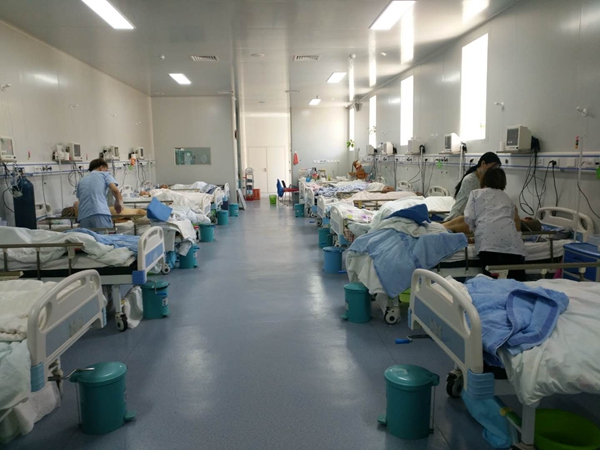Unconscious compassion


At huge personal cost, neurosurgeon Xiang Jiuda has set up one of the mainland's first specialized facilities to care for people in a persistent vegetative state, Wang Qian reports.
In the past five years, Xiang Jiuda quit his job as a neurosurgeon at a public hospital, sold one house, mortgaged another, and set up and began operating a special care center. It provides palliative treatment for patients in a persistent vegetative state.
There are currently 32 patients under Xiang's care, who are tended to by a team of 20 nurses at the PVS Care Center in Beijing's suburban Miyun district. It is reported to be one of the mainland's first specialized nursing homes for people in a persistent vegetative state.
According to the American Academy of Neurology, a vegetative state is defined as "a state of complete ignorance of oneself and one's environment, but one where the sleep-wake cycle, the autonomic functions of hypothalamus and brain stem are completely or partially preserved".
The 50-year-old Beijing man says: "These patients have almost no hope of recovery, and they are rejected by most hospitals because of limited medical resources and rejected by nursing homes because of the high demand for daily care."
He adds that home care is usually the only option, which is a challenge for nursing staff, because it requires continuous medical intervention and extensive care.
In China, it is estimated that about 500,000 patients are in a persistent vegetative state, and this number is still rising. For Xiang, who has been a neurosurgeon for more than 20 years, there are thousands of heartbroken families behind these numbers.
After a year of market research, Xiang's nursing center was established on March 8, 2015, aimed at improving the quality of life of patients with anomalous pulmonary venous drainage and reducing the burden of care on affected families.
His startup funds-1.7 million yuan ($242,739)-came from the house he sold, which was used on rent, hiring nurses and purchasing medical equipment.
Unlike other nursing homes, the center is more like a hospital, with medical facilities such as monitors and nursing beds in an intensive care unit.
Xiang says: "Usually, most vegetative patients at home die within three to four months, but under the medical care of hospitals, they can live for nearly two years on average." One 86-year-old patient has stayed at Xiang's center for more than four years.
Charging 7,500 yuan to 10,000 yuan per month, a patient will receive 24-hour monitoring and procedures, such as suction, tracheostomy care, turning, bathing and toilet care, which are carried out by trained nurses. Comparatively, an ICU at hospital will cost around 3,000 yuan per day.
"Caring for a PVS patient means comforting the family. The patient is still a living person," Xiang says, adding that the center is home for these patients, which allows their relatives to return to a normal life.
For Xiang, the center is his career, not business, he says.
For most families with a PVS relative, as the old saying goes, where there is life, there is hope. For them, Xiang's center provides the latter.




































